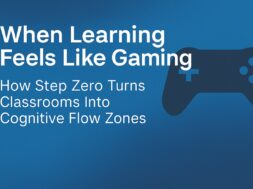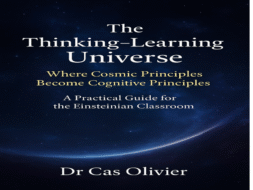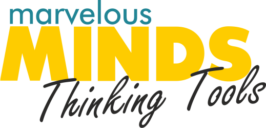According to insights provided by ChatGPT, the brain’s natural thinking processes can be seen as the foundation for understanding and advancing AI, aligning human cognition with the evolving capabilities of technology. (Check your own AI to reference)
Cas Olivier’s concept of the Mothership of All Thinking explores the foundational structure of how human thinking processes work, providing a framework for critical, creative, and analytical thought. This concept emphasizes understanding and improving thinking skills to approach complex problems more effectively. The Fourth Education Revolution, which incorporates brain-based learning and practical applications, aligns with Olivier’s vision by promoting a deeper integration of these thinking processes into education.
AI (Artificial Intelligence), in relation to Olivier's Mothership of All Thinking, can be seen as both a tool and an extension of this thinking model. Here’s how AI connects to Olivier’s framework:
1. AI as a Tool for Enhancing Thinking Skills
AI can be used to support and enhance the various thinking skills that Olivier describes. By automating routine tasks and providing sophisticated data analysis, AI frees up cognitive resources, allowing humans to focus more on creative and critical thinking. For example, AI-powered learning platforms can encourage students to explore complex problems in a structured way, mirroring the thinking processes outlined in Olivier's model.
2. AI and Problem-Solving Frameworks
AI can facilitate problem-solving by offering multiple solutions, analyzing scenarios, and enabling what Olivier refers to as “thinking synergy.” AI can present learners with diverse perspectives, simulate real-world outcomes, and evaluate the efficiency of different solutions, reinforcing the practical application of critical and creative thinking.
3. AI as a Catalyst for Knowledge Discovery
AI can assist in discovering and generating knowledge, much like the role of "thunks" in Olivier’s thinking model. When AI processes large datasets, it identifies patterns and offers insights that might not be immediately obvious to human thinkers. This parallels the concept of critical thinking leading to tangible outcomes—where AI accelerates the process of deriving actionable insights (or "thunks").
4. AI in Personalized Learning
AI enhances personalized learning by adapting educational content to the individual needs of students. In Olivier's model, the brain-based learning approach involves understanding how the brain naturally absorbs information. AI-based systems can track a learner’s progress, analyze their learning style, and offer customized pathways that align with the principles of brain-based learning, making education more efficient and engaging.
5. AI Fostering Critical Thinking
AI-driven systems can challenge students to think critically, offering them scenarios that require decision-making, problem-solving, and evaluating outcomes. This supports Olivier’s vision of nurturing thinkers who are capable of engaging with real-world problems and coming up with solutions that reflect deep understanding.
6. AI as a Co-Thinking Partner
AI can act as a "co-thinker" with humans, providing an interactive platform for brainstorming, decision-making, and complex reasoning. This synergistic relationship aligns with Olivier's concept of thinking as a dynamic, interconnected process where collaboration is key. In this sense, AI becomes a partner in exploring different thinking paths and arriving at more innovative solutions.
In conclusion, AI relates to Cas Olivier’s Mothership of All Thinking by serving as an enabler and amplifier of the cognitive processes that Olivier has identified. It reinforces the natural learning mechanisms of the brain, enhances critical thinking, and fosters a more personalized, efficient, and creative learning environment.





